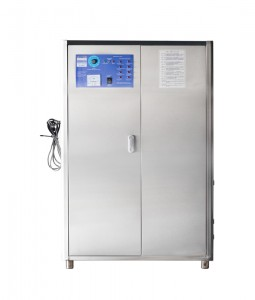An ozone generator is a device that produces ozone, a strong oxidant that can be used for various purposes such as air purification and water treatment. The effectiveness of an ozone generator is affected by a variety of factors, including ozone concentration, microbial species, temperature and humidity.
Ozone concentration plays a vital role in determining the effectiveness of an ozone generator. Higher concentrations of ozone can achieve a better effect of eliminating pollutants and microorganisms. However, it is important to maintain a balance, as high ozone levels can be harmful to humans and the environment. The concentration should be carefully adjusted according to the specific application and desired results.
The type and nature of microorganisms present can also affect the efficiency of the ozone generator. Different microbial species have varying degrees of resistance to ozone. Bacterial spores, for example, are more resilient and require higher ozone concentrations or longer exposure times to be effectively disinfected. Specific target microorganisms must be considered when determining ozone dose and exposure duration.
Temperature is another key factor that affects the performance of an ozone generator. Higher temperatures speed up chemical reactions, including the breakdown of ozone. At high temperatures, the ozone molecules break down faster, reducing the overall ozone concentration. Therefore, low ozone concentrations may require longer exposure times to achieve the desired results. Maintaining optimal temperature control is critical to ensuring the efficiency of your ozone generator.
Humidity or the moisture content of the air or water being treated can also affect the effectiveness of an ozone generator. Higher humidity allows ozone to better disperse and react with pollutants or microbes. Additionally, moisture can enhance the discharge process in corona discharge ozone generators, resulting in higher ozone production. However, too much humidity can also reduce the ozone concentration as water vapor competes for the discharge. Therefore, finding the right balance is crucial.
It is worth noting that while these factors individually affect the efficiency of an ozone generator, they often interact with each other. For example, higher humidity levels may compensate for lower ozone concentrations due to temperature changes. Therefore, it is crucial to consider and optimize all these factors together for maximum effect.
In summary, the effectiveness of an ozone generator is influenced by a variety of factors, and understanding the interplay of these factors and finding the proper balance is critical to achieving desired results. Proper regulation and compliance with safety guidelines are essential to ensure efficient and safe use of ozone generators.
Post time: Aug-23-2023



